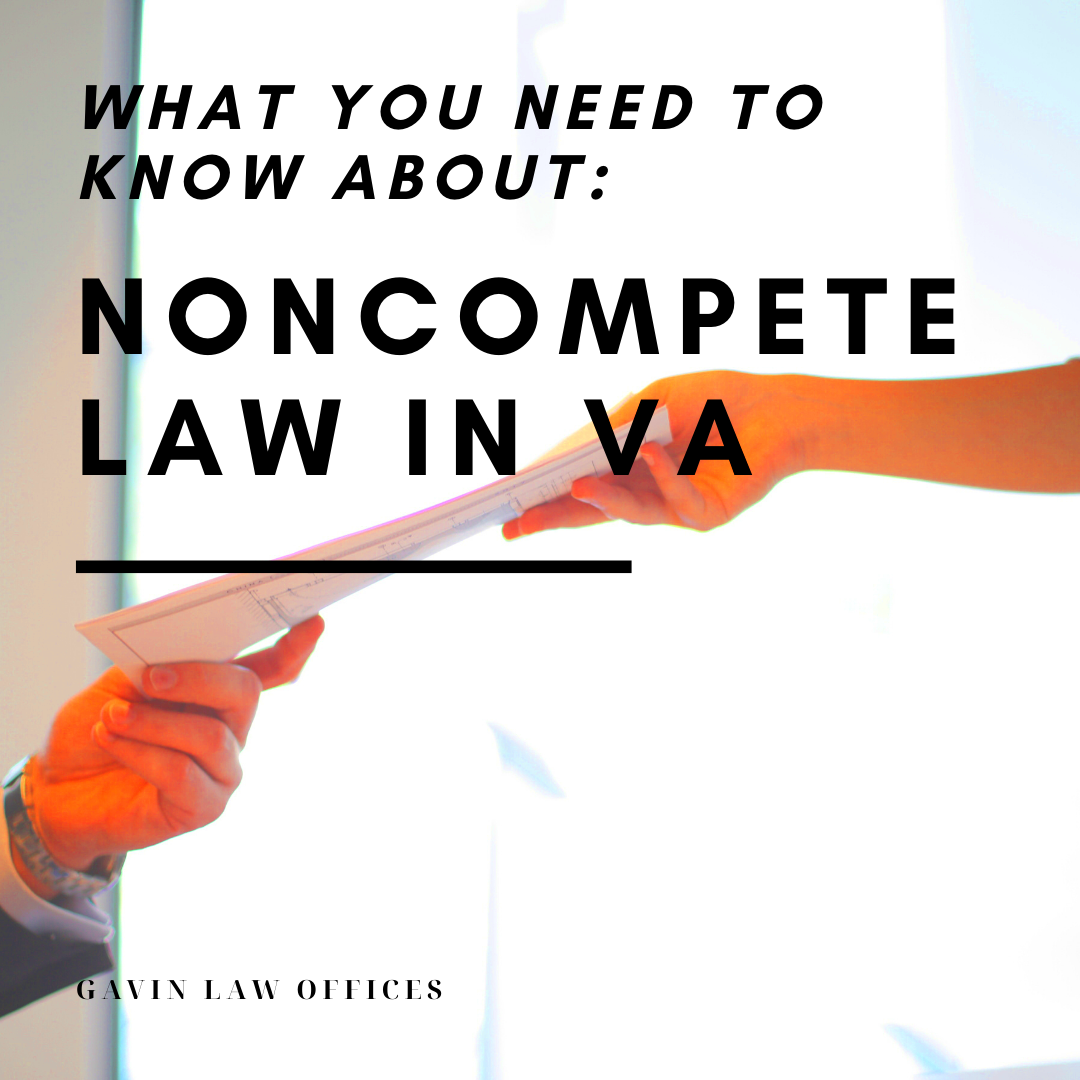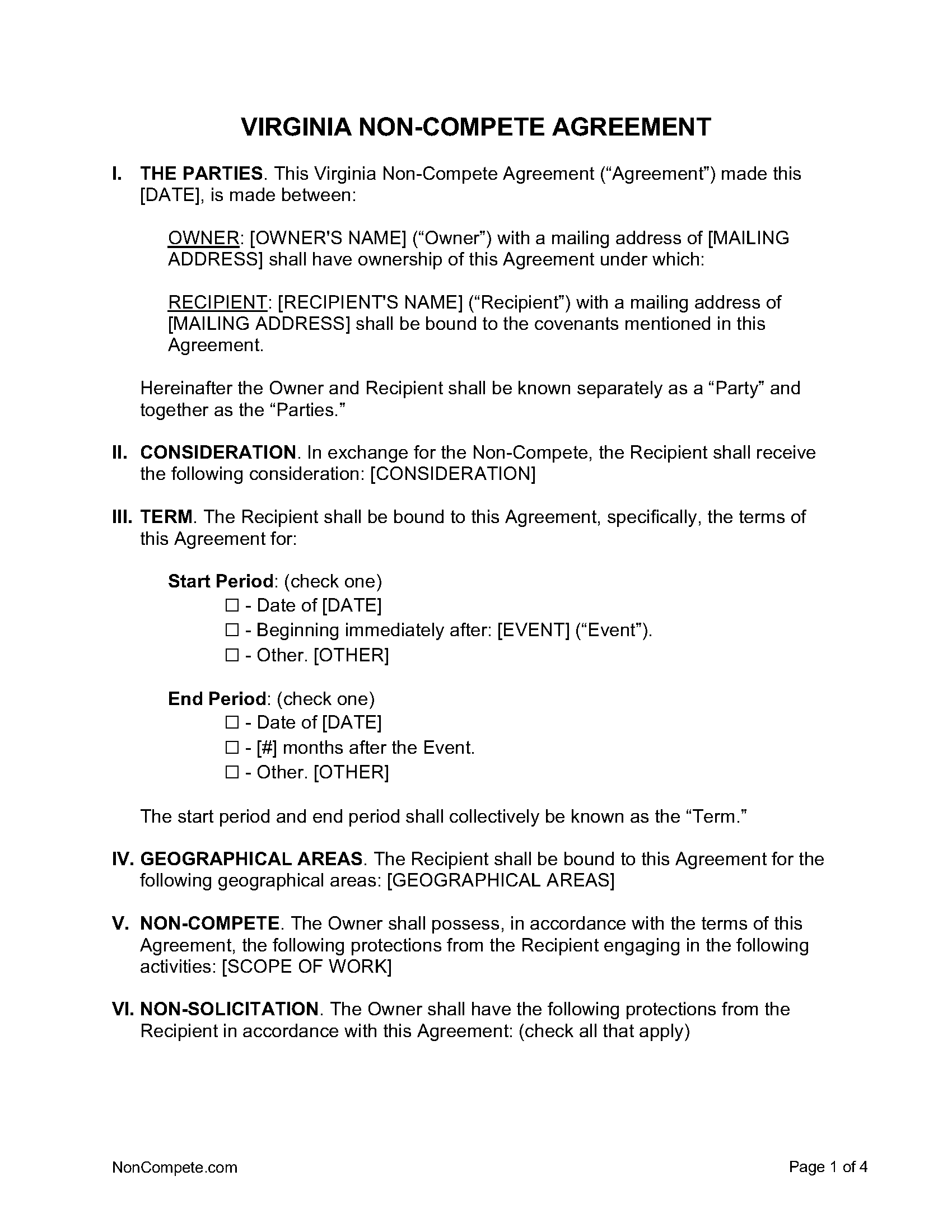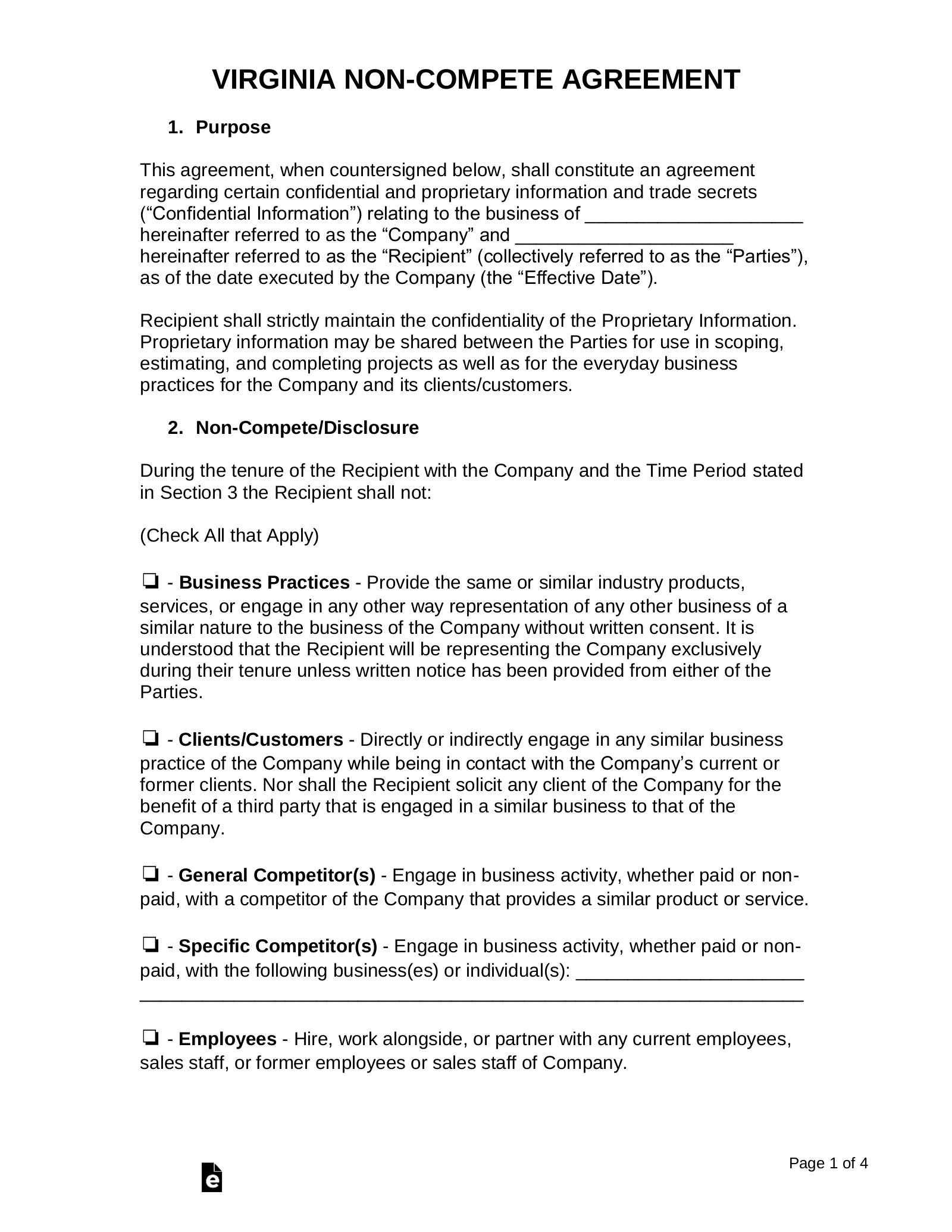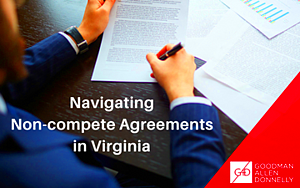Virginia Non-Compete Law Explained
Virginia’s non-compete law is a vital area of employment law that governs agreements between employers and employees. These agreements often prevent employees from working with competitors or starting similar businesses after leaving a job. Understanding this law is essential for both employers and employees to navigate the legal landscape effectively and protect their rights.
Understanding Non-Compete Agreements

Non-compete agreements are contracts that restrict an employee from engaging in certain activities that compete with their employer’s business for a specified time and within a designated area. These agreements aim to protect trade secrets, confidential information, and customer relationships. However, they can also limit an employee’s ability to find new work. Here are some key points to consider:
- Purpose: To protect business interests and maintain a competitive edge.
- Duration: Specifies how long the restrictions apply, usually ranging from a few months to a few years.
- Geographic Scope: Defines the area where the restrictions apply, which can be local, state, or even national.
- Consideration: Employees must receive something of value in exchange for signing the agreement, such as a job offer or promotion.
It’s important for employees to understand the terms of these agreements before signing, as they can significantly impact their future career opportunities.
Key Provisions of Virginia Non-Compete Law

Virginia’s non-compete law includes specific provisions that affect how these agreements are interpreted and enforced. Here are some of the key provisions:
- Reasonableness: Non-compete agreements must be reasonable in scope, duration, and geographic reach. Courts assess whether the restrictions are necessary to protect legitimate business interests.
- Protectable Interests: Employers must demonstrate that they have legitimate business interests to protect, such as trade secrets or specialized training.
- Employment Status: Non-compete agreements may have different implications for employees based on their roles, such as key employees versus lower-level employees.
- Public Policy Considerations: Courts may refuse to enforce overly restrictive non-compete agreements if they are deemed to harm public interest or limit competition excessively.
Understanding these provisions is crucial for both employers drafting these agreements and employees reviewing them before signing.
Enforceability of Non-Compete Agreements in Virginia

In Virginia, the enforceability of non-compete agreements hinges on several critical factors. Courts evaluate these agreements carefully to ensure they are fair and not overly restrictive. If an agreement is deemed unreasonable, it may not hold up in court. Here are some aspects that affect enforceability:
- Reasonableness: The agreement must be reasonable in terms of duration and geographic scope. For instance, a two-year restriction may be acceptable in some cases, but a five-year restriction might raise eyebrows.
- Legitimate Business Interest: Employers must demonstrate a valid business interest that justifies the non-compete. This could include protecting confidential information or customer relationships.
- Clear Language: The terms of the agreement should be clear and specific. Vague language can lead to confusion and make it harder to enforce.
- Employee’s Role: The employee’s position can influence enforceability. Higher-level employees may be subject to stricter non-compete terms than lower-level employees.
If a non-compete agreement meets these criteria, it is more likely to be enforceable in Virginia courts. However, always consult a legal professional to understand your specific situation better.
Factors Affecting the Validity of Non-Compete Agreements
Several factors can impact the validity of non-compete agreements in Virginia. Understanding these factors can help both employers and employees navigate potential challenges. Key considerations include:
- Time Limitations: Agreements that impose excessively long restrictions may be invalid. Courts generally prefer reasonable timeframes, often less than two years.
- Geographic Restrictions: The area defined in the agreement should be reasonable. A broad geographic scope may not be enforceable if it limits an employee’s ability to find work excessively.
- Industry Standards: The nature of the industry plays a role. Some industries may have common practices regarding non-compete agreements that courts consider.
- Changes in Employment: If the employee is terminated or laid off, it can affect the validity of the non-compete. An employer may have less ground to enforce it in such cases.
These factors highlight the importance of carefully drafting and reviewing non-compete agreements to ensure they are fair and valid.
Exceptions to Non-Compete Agreements
While non-compete agreements are common, there are exceptions where they may not be enforceable in Virginia. Knowing these exceptions can provide employees with leverage when facing such agreements. Here are some notable exceptions:
- Unemployment Situations: If an employee is laid off or terminated without cause, the non-compete may not be enforceable.
- Trade Secrets Violation: Non-compete agreements may not apply if the employee has not been exposed to trade secrets or confidential information.
- Public Policy: Agreements that harm public interest or limit competition excessively may be deemed unenforceable. Courts may reject them on these grounds.
- Employer Breach: If the employer breaches the employment contract, the non-compete may become invalid.
Understanding these exceptions can empower employees to challenge non-compete agreements that may not be valid in their circumstances.
Implications for Employees and Employers
Non-compete agreements can have significant implications for both employees and employers. Understanding these effects is crucial for navigating the job market and maintaining a competitive business. Let’s break down what each side needs to consider:
- For Employees:
- Career Limitations: Employees may find their job options limited, especially if they are tied to a specific industry or geographic area.
- Negotiation Power: Knowing the enforceability of these agreements can give employees leverage during negotiations, especially if they have specialized skills.
- Legal Risks: Violating a non-compete can lead to legal battles, potentially resulting in financial penalties or job loss.
- For Employers:
- Protection of Business Interests: Non-compete agreements can help protect confidential information and client relationships, ensuring a competitive edge.
- Hiring Challenges: Employers may face difficulties attracting talent if they impose strict non-compete clauses, as potential employees may seek more favorable terms elsewhere.
- Enforcement Costs: Enforcing these agreements can lead to costly legal disputes, so employers need to weigh the benefits against the potential costs.
In summary, both employees and employers should carefully consider the implications of non-compete agreements before entering into them. Seeking legal advice can help clarify any uncertainties and ensure that rights and responsibilities are well understood.
Frequently Asked Questions
Here are some common questions regarding non-compete agreements in Virginia, along with their answers:
- What is a non-compete agreement? A non-compete agreement is a contract that restricts an employee from working in a competing business for a specific period after leaving their job.
- Are all non-compete agreements enforceable in Virginia? No, not all agreements are enforceable. They must be reasonable in duration, geographic scope, and necessity to protect legitimate business interests.
- Can I negotiate the terms of a non-compete? Yes, employees can often negotiate the terms before signing. It’s wise to seek legal advice to understand what is fair.
- What happens if I violate a non-compete agreement? Violating a non-compete can lead to legal action from your former employer, which may include financial penalties.
- Can my employer enforce a non-compete if I was terminated? It depends on the circumstances of your termination. If you were laid off without cause, the agreement may be unenforceable.
These FAQs can help clarify some common concerns, but it’s always best to consult with a legal professional for specific situations.
Conclusion
In conclusion, understanding Virginia’s non-compete law is essential for both employees and employers. These agreements can offer protection for businesses while potentially limiting employees’ career options. It’s vital to ensure that these agreements are reasonable and fair to both parties. If you’re an employee facing a non-compete, don’t hesitate to seek legal advice to navigate your rights. Employers should also be mindful of how these agreements might affect their ability to attract and retain talent. By being informed and proactive, both sides can find a balance that protects business interests without stifling career growth.


